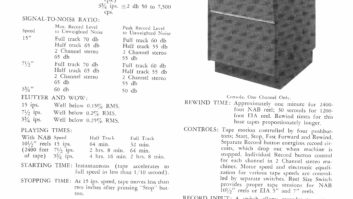Low-power FM proponent REC Networks has asked the FCC to approve a power increase for LPFMs, calling such a boost the next logical step in the growth of the service.
Specifically, REC has asked the agency to OK a power increase from the current 100 watts to 250 watts. Currently LPFMs have a three-mile coverage contour and some are telling REC networks they’re experiencing issues with building penetration.
This isn’t the first proposal to increase power for LPFMs. We previously wrote about similar requests put forth by The Amherst Alliance and the Catholic Radio Association, which also focused on rural expansion. However, REC says in its Petition for Rulemaking that this proposal is different, first focusing on enhancing the listener experience within the three-mile LPFM contour. The petition also addresses the need to enhance coverage within suburban and less spectrum-crowded urban areas.
Unlike the previous LPFM proposals which restricted upgrades to rural stations only, the new LP-250 Petition for Rulemaking calls for no geographic restrictions on the upgrading of LPFM stations, according to REC Networks Founder Michelle Bradley.
Some LPFM stations may have to switch channels in order to upgrade. Based on the ability for some stations to make the second adjacent channel waiver at the higher power, REC is estimating that 50% to 75% of LPFM stations will be able to upgrade to LP-250.
REC has also asked the FCC to allow 100 W LPFM stations to move up to 6.9 miles (11.1 km) and upgraded LP-250 stations up to 8.7 miles (14.1 km) as a minor move and remove the requirement of service contour overlap between LPFM stations and commonly-owned FM translators in light of other restrictions in place to keep these stations local.
Possibly of most interest to full-service broadcasters, REC is asking for new second-adjacent channel protection requirements for all FM translators. Bradley explains to Radio World the proposal “fixes an inequality between the LPFM rules and the translator rules. Currently, a translator can come into the second adjacent channel of an LPFM but an LPFM cannot come into the second adjacent of a translator without asking for a waiver. Our proposed rule assures that FM translators and LPFM stations are treated as equal as possible where it comes to second-adjacent spacing.”
The LPFM proponent is also asking for relief from the requirement that time-share stations program eight hours of local programming a day, calling the rule “excessive.” REC proposes a third of that.
Striking a conciliatory tone, REC Networks pledges to work with not only the LPFM community, but also the NAB, NPR, NTIA and others to help grow the low-power service and asks the agency to seek public comment on the petition.
Related:
LPFM Advocates Seek LP250 Class
Should FCC License LP250, LP10s?












